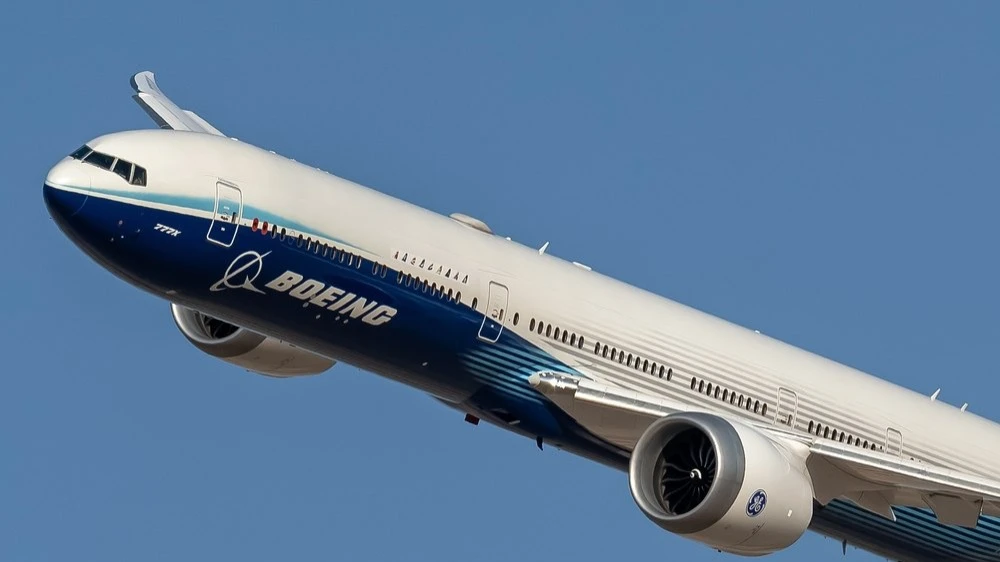Boeing has been cleared to move forward with a new phase of testing for the 777X. What does this mean for the company?
Production of the long-haul jet has been repeatedly delayed, resulting in a write-off of nearly $16 billion already

Boeing has received permission from the aviation regulator to proceed to the next - the largest - stage of flight testing of the new 777X airliner. The realization of this project has dragged on for years, and last quarter, for example, the company wrote off almost $5 billion due to delays. Despite the airplane maker's temporary financial difficulties, including the problems with the 777X, most analysts remain optimistic about the long-term prospects for its stock.
Details
The U.S. Federal Aviation Administration (FAA) has authorized Boeing to proceed to the next phase of flight testing of its newest 777X jetliner, The Air Current reported , citing sources.
The 777X project was launched in 2013 as the flagship program of the new generation of wide-body aircraft. It made its maiden flight in 2020, and entry into commercial operation was initially planned for 2026. However, the certification process stalled due to increased regulatory scrutiny following problems with the 737 MAX model and production delays. As a result, Boeing was forced to write off $4.9 billion in the third quarter, and in total the company has already recorded nearly $16 billion in write-offs under the program. The airplane is now expected to enter commercial service in 2027, Barron's notes .
The company said the 777X "will be the world's largest and most efficient twin-engine jetliner, unrivaled in every aspect of performance." It is of strategic importance to Boeing in competing with Airbus for a share of the lucrative long-haul market, Bloombergwrote. In addition, the delays reduce the cash flow the U.S. plane maker needs to recover from a years-long crisis,.
"We continue to work under FAA oversight to meet all certification requirements," Boeing said of the program's progress.
How Boeing's recovery rates Wall Street
At the premarket on November 12, shares of Boeing slightly increased - by almost 0.5%. Weak dynamics of quotations has been observed since the publication of the report for the third quarter, when the company disclosed another write-off on the 777X program. Before that, investors remained optimistic: Boeing securities were supported by steady growth of production and deliveries of 737 MAX airplanes, which was considered as a sign of recovery of the civil segment. Now market attention has shifted to financial risks and protracted problems with certification, which temporarily cooled interest in these shares, Barron's believes.
Despite temporary financial difficulties, Boeing is able to restore margins, reduce debt and reach a significant cash flow by 2027, notes analyst of the investment group The Aerospace Forum Dheerin Bechai. On November 10, he reiterated a recommendation to buy the company's securities with a target price of $277.3, emphasizing that Boeing remains a high-risk investment opportunity with high yield potential, Seeking Alpha writes . The analyst's target suggests the potential growth of quotations by 42% from the closing level on November 11.
There are also less optimistic forecasts. In late October, Deutsche Bank downgraded Boeing's stock from "buy" to "hold," saying the current valuation already reflects the long-term prospects for recovery, Investing.com reported . The bank cut its target price from $255 to $240, citing weak free cash flow and low debt reduction rates. Analysts now expect the company to generate $2.1 billion in free cash flow in 2026 and $6 billion in 2027, 56% and 40% worse than previous forecasts.
According to Deutsche Bank, the rating revision reflects Boeing's limited financial capacity in the coming years due to declining margins, upfront payment pressure and rising capital expenditures. Analysts acknowledged that the 737 and 787 programs are showing improvements, but the positive effect on cash flow and earnings will not be immediately apparent.
"We remain confident in Boeing's leadership and potential by 2028, but the stock looks close to full valuation at this point and the company still has a tremendous amount of work to do to reach its goals," Deutsche analyst Scott Deuschle wrote.
On the whole, the market's attitude to Boeing is predominantly "bullish". According to MarketWatch, 21 analysts suggest buying these securities, while only three analysts offer advice to keep them in their portfolios, and only one recommends selling them.
Context
Boeing said on Nov. 10 that it delivered 53 airplanes in October, bringing its year-to-date total to 493, and received 15 new orders. The company is on track for its best annual delivery total since 2018, when its customers received 806 airliners, Reuters reported .
Meanwhile, Boeing still lags behind European rival Airbus, which delivered 585 airplanes in the first ten months of the year, the agency adds.
This article was AI-translated and verified by a human editor
